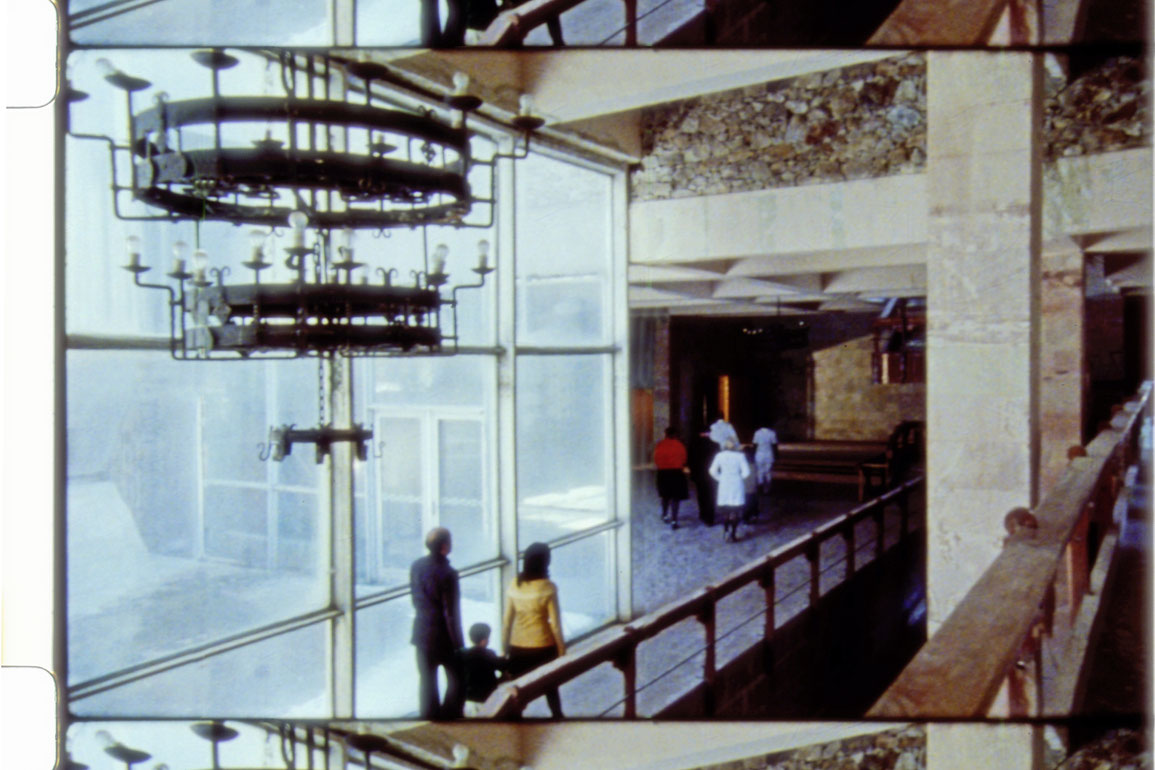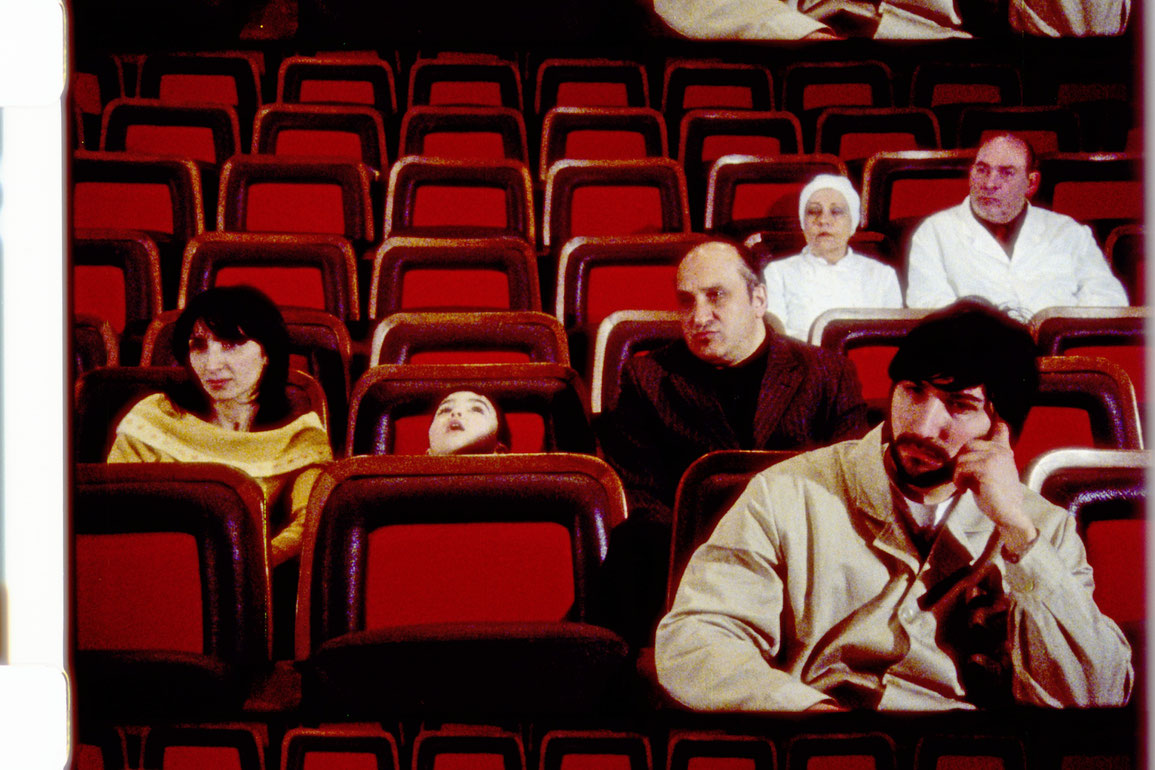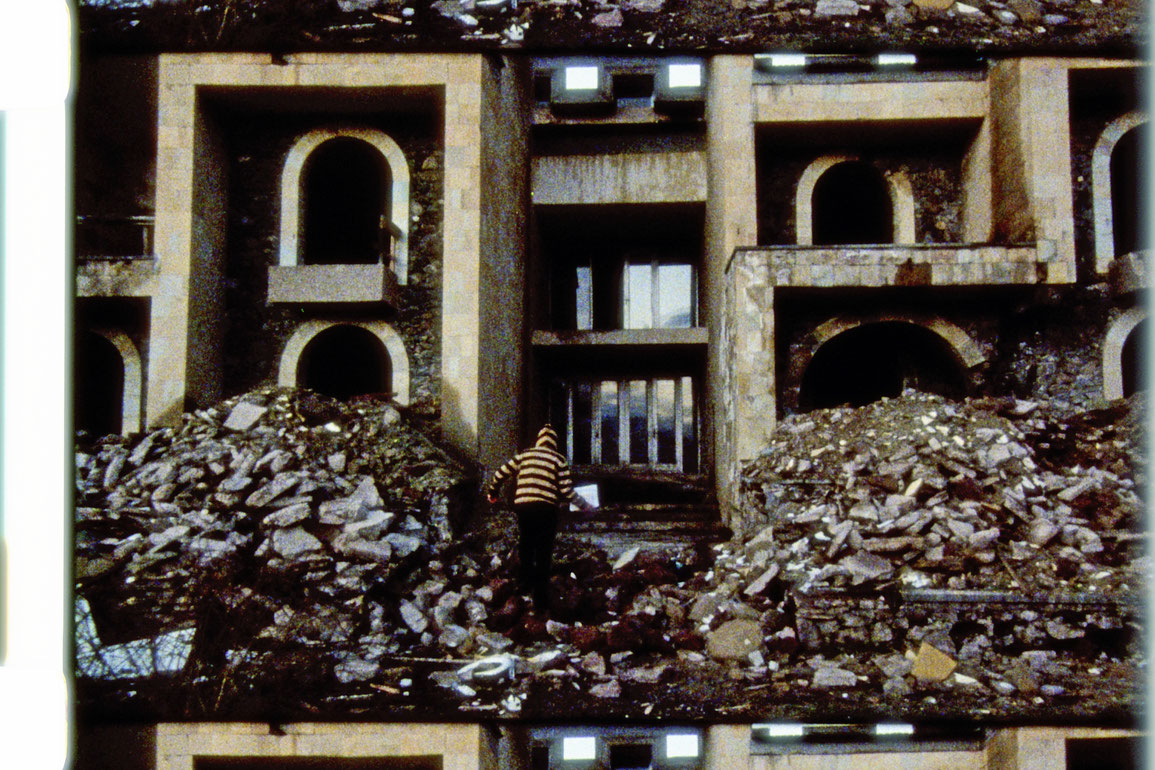Hypercrisis
The former recreation home for Soviet cinematographers in the South Caucasus has been repurposed to accommodate writers. But that does not seem to work very well either. At present, only Boris Martow from Moscow, a talent from the promising times of the perestroika, is on the guest list.
Amidst the faded glory of the institution for privileged artists, the poet tries to overcome his continuing creative crisis. There is little support from the staff of the house. Especially the higher ranking live in the lap of luxury. They appear to primarily satisfy their own desires instead of meeting the wishes of others.
Nevertheless a joint celebration is organized. In the institution’s own cinema, however, the system ultimately shows its true colours. The indisposed audience is bored by the musical performance of the highly gifted twins Arevshatyan, and the nervous crisis of the poet reaches a low point just at the time of the celebration.
(Josef Dabernig)
...Pulled into this comic orbit-cum-exhibition as a framing narrative, Josef Dabernig´s Hypercrisis (2011) more than smirks at torpid bureaucracies, and hints at other concepts in the show´s core vocabulary.
In this film-essay, the contemporary afterlife of a real, but vestigial, institution and its dilapidated home in today´s Armenia are surveyed by Dabernig´s patient and relentless camera. Set up in Soviet times, the site in question was designed as a work retreat for talented cinematographers to recharge, yet in the film, the only person in “official” residence is a sole writer suffering from a nasty case of writer´s block. The entire administrative staff of the retreat surrounds this unproductive figure, though instead of catering to the guest and his needs, they are rather busy indulging in grand feasts and basically having the run of the decaying place. Tellingly the film, which features a writer who isn´t able to write, lacks any dialogue.
Yet the visual story set up by the close framing of the camera and the expert pacing of the film´s editing is twinned with the sound track so as to advance the plot by other means. The parvenu staff is shown dining accompanied by Verdi´s Requiem—a funeral mass—while the writer listens in isolation to the Krautrock band Can (even though he “can´t”). The writer never proves a hero who can rise above his creative crisis—nor do the musicians, who in the ultimate scene bore the audience with a lackluster performance in the retreat´s disused cinema. Here the avenging angels are the film and Dabernig himself. Both, after all, manage to synthesize the atomized functions of photography, scripting, and score through the role of direction, and thus condemn the lack of leadership in the micro-society that is our setting...
(Adam Kleinman)
Hypercrisis
2011
Austria
17 min



